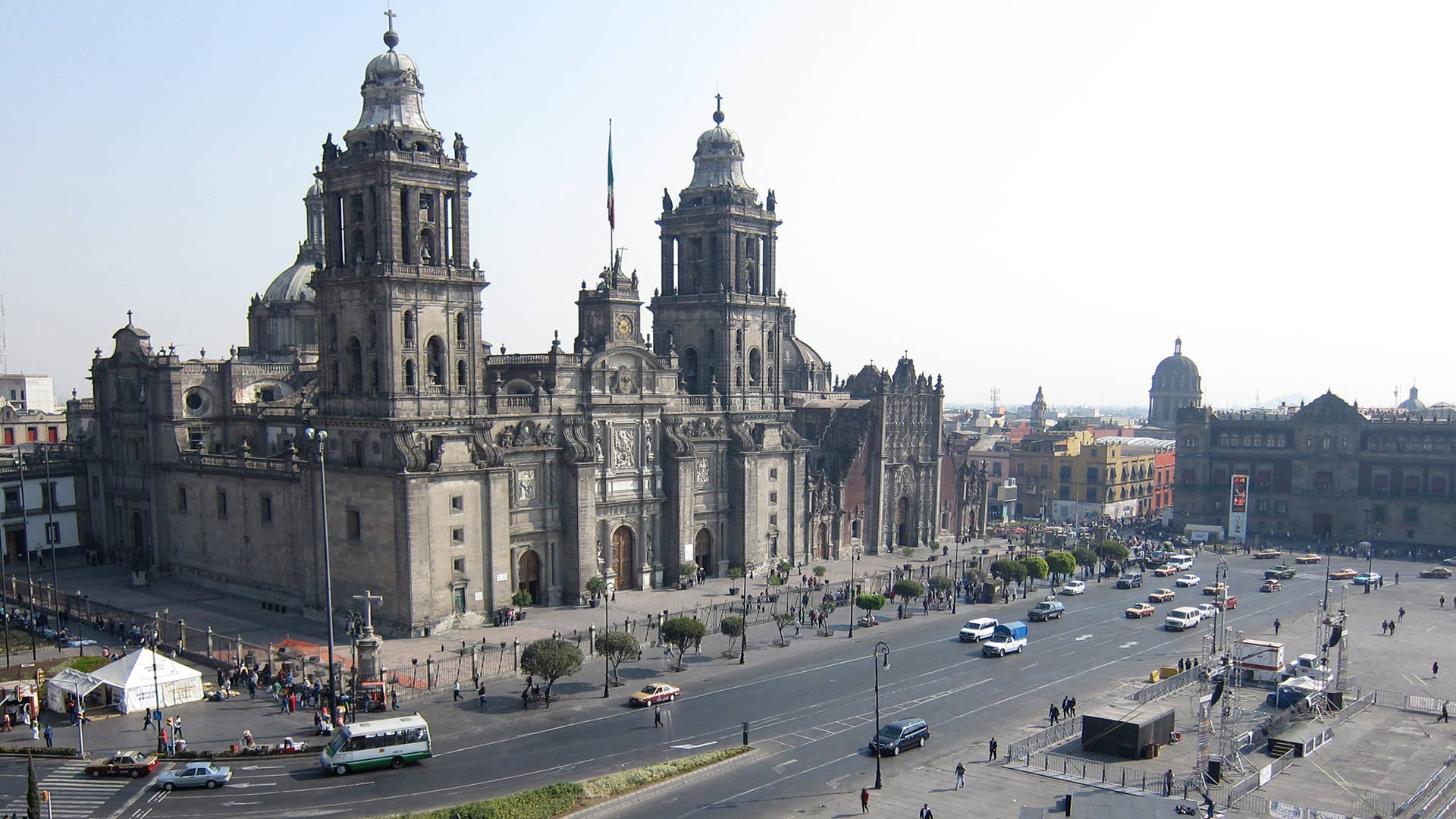 The cathedral in the Zócalo, or central plaza, of Mexico City.
The cathedral in the Zócalo, or central plaza, of Mexico City.
HIDALGO, Mexico - Like most people who don’t drive an electric vehicle regularly, Mauricio Gonzalez has to check and see if the engine is even running. When he confirms that it is, the SUV made by Chinese manufacturer JAC Motors is flying.
"I think it’s a very nice car. It’s very powerful, and I think it’s very comfortable, also.”
But what Gonzalez is really excited about is that this SUV was assembled in the central Mexican state of Hidalgo. Gonzalez is the state’s undersecretary for economic development. His job is to attract companies here, and the plant where these SUVs are made already employs 200 people.
“Their priority is to create, more or less, 1,000 jobs,” he said.
JAC is one of three companies owned by the Chinese government with a presence in Mexico. Just last month, JAC started selling its SUVs here. They’re working in partnership with a Mexican company called Giant Motors.
Giant was started 10 years ago by a group of Mexican investors. They’ve also partnered with Chinese company FAW Trucks to make commercial vehicles. Giant Motors CEO Elias Masri said that for now, his company’s long-term plan doesn’t even include American consumers.
“The main issue is to make a Mexican product. And our main goal today is Mexico and Latin America,” Masri said.
“Mexico has a lot of other options,” said Kristen Dziczek, an analyst with the Center for Automotive Research in Ann Arbor, Michigan.
“Mexico has free trade with over half the market for new vehicles in the world, and they can very easily shift to being a non-NAFTA export," she said.
Without a doubt, Dziczek said, Mexico is closely linked to the U.S. She estimates that about two-thirds of U.S. investment in Mexico comes from the automotive sector. But what’s already here won’t just evaporate if the North American Free Trade Agreement disappears.
“Right now, they’re making one in five vehicles for non-NAFTA export, and we see that rising in just three or four years to one in three.”
One possible new partner for Mexico is China. Dziczek said that with Mexico’s established ecosystem of carmakers and part suppliers, it’s a good place for Chinese companies to get a toe-hold as they seek to expand outside of China. Although it should be noted that Chinese presence in Mexico is not new, said Enrique Dussel Peters, the director of Center of Chinese-Mexican Studies at the National Autonomous University of Mexico.
“Well, China is Mexico's second largest trading partner since 2003,” he said.
But, historically, Mexico has competed with China to export to the U.S. and elsewhere. And Dussel said that in 2016, Mexico’s import-export relationship with China was 13 to 1.
“So we are importing massively from China and exporting very little.”
Mexico could benefit more, Dussel said, but at least for now it lacks the government, business and academic infrastructure to fully exploit that relationship. “And so if we do not make our homework, we will not be able to sell tequila, no? Hah. Less aside other more sophisticated goods.”
Back inside the JAC Motors SUV, Gonzalez celebrates the Chinese investment in the state of Hidalgo. But he doesn’t want companies to come exclusively from one place, whether it’s the U.S. or China.
“That's why we're looking forward to promote the state of Hidalgo in Asia, in particular, also in Europe,” he said.
As it turns out, most people betting on whether automotive investments will become a long-term strategy from China are being cautious.


By submitting your comments, you hereby give AZPM the right to post your comments and potentially use them in any other form of media operated by this institution.